Constants & Literals In C
Constants refer to fixed values that the program may not alter during its execution. These fixed values are also called literals.
Constants can be of any of the basic data types like an integer constant, a floating constant, a character constant, or a string literal. There are enumeration constants as well.
Constants are treated just like regular variables except that their values cannot be modified after their definition.
Integer Literals
An integer literal can be a decimal, octal, or hexadecimal constant. A prefix specifies the base or radix: 0x or 0X for hexadecimal, 0 for octal, and nothing for decimal.
An integer literal can also have a suffix that is a combination of U and L, for unsigned and long, respectively. The suffix can be uppercase or lowercase and can be in any order.Here are some examples of integer literals:
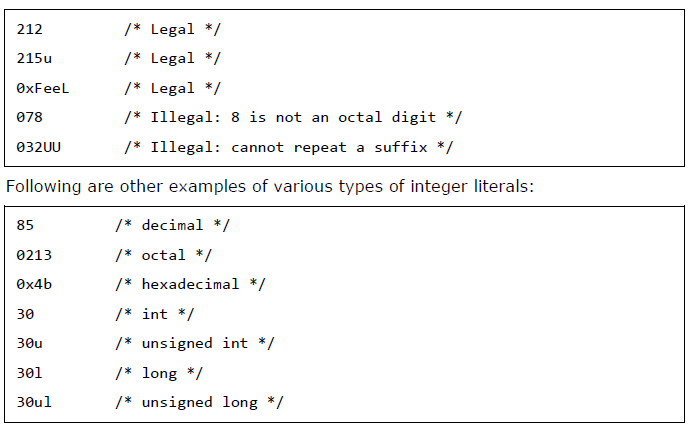
Floating-point Literals
A floating-point literal has an integer part, a decimal point, a fractional part, and an exponent part. You can represent floating point literals either in decimal form or exponential form.
While representing decimal form, you must include the decimal point, the exponent, or both; and while representing exponential form, you must include the integer part, the fractional part, or both. The signed exponent is introduced by e or E.
Here are some examples of floating-point literals:

Character Constants
Character literals are enclosed in single quotes, e.g., 'x' can be stored in a simple variable of char type.
A character literal can be a plain character (e.g., 'x'), an escape sequence (e.g., '\t'), or a universal character (e.g., '\u02C0').
There are certain characters in C that represent special meaning when preceded by a backslash, for example, newline (\n) or tab (\t). Here, you have a list of such escape sequence codes:
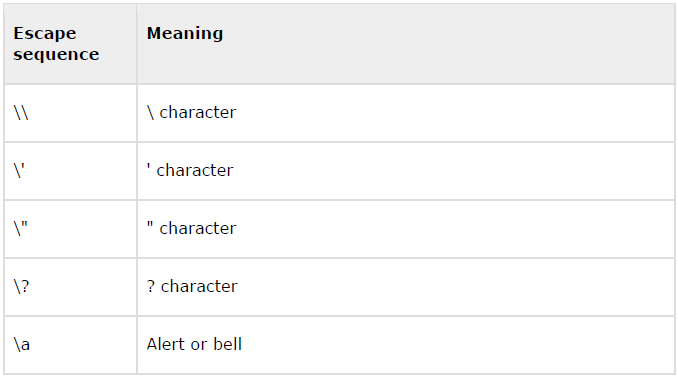
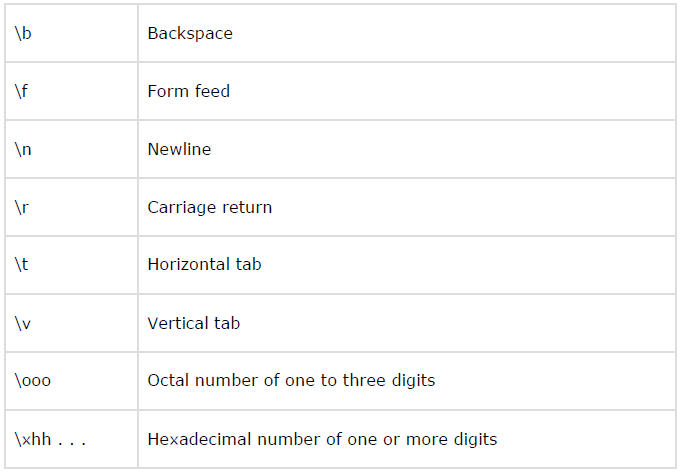
Following is the example to show a few escape sequence characters:
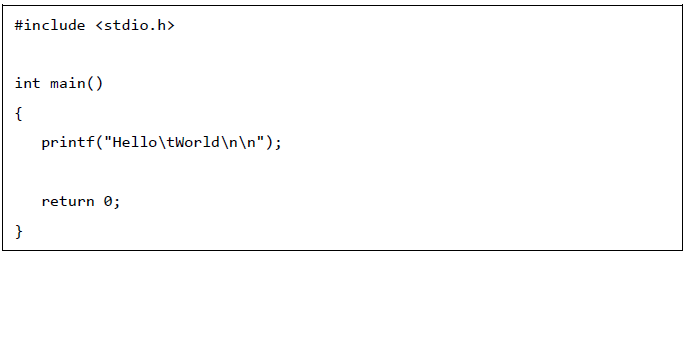
When the above code is compiled and executed, it produces the following result:
Hello World
String Literals
A "string literal" is a sequence of characters from the source character set enclosed in double quotation marks (" "). String literals are used to represent a sequence of characters which, taken together, form a null-terminated string. You must always prefix wide-string literals with the letter L.
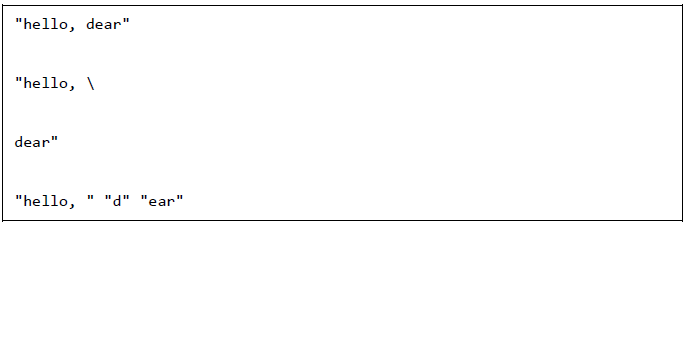
Defining Constants
There are two simple ways in C to define constants:
* Using #define preprocessor
* Using const keyword
The #define Preprocessor
Given below is the form to use #define preprocessor to define a constant:#define identifier value
The following example explains it in detail: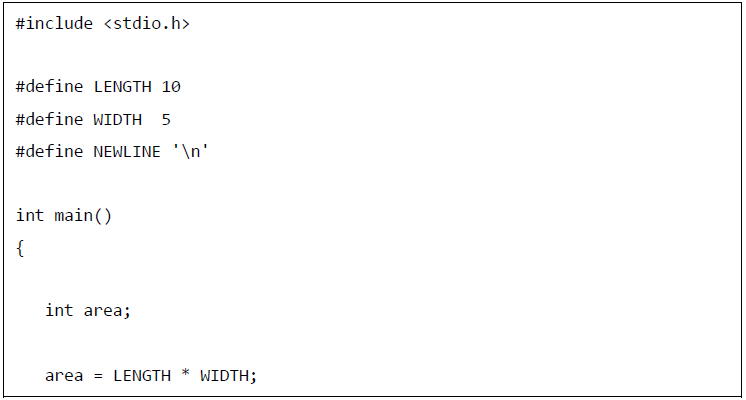
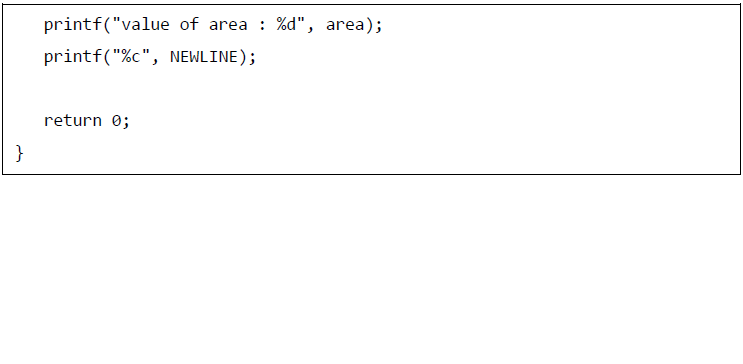
When the above code is compiled and executed, it produces the following result:
value of area : 50
The const Keyword
You can use const prefix to declare constants with a specific type as follows:
const type variable = value;
The following example explains it in detail:
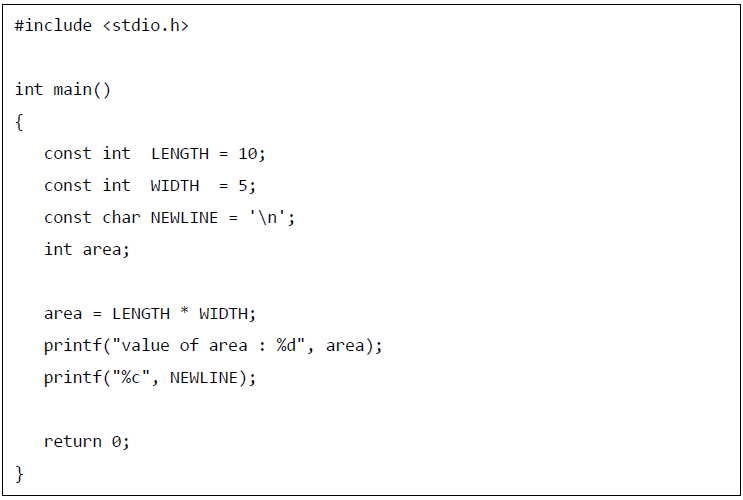
When the above code is compiled and executed, it produces the following result:
value of area : 5
Note that it is a good programming practice to define constants in CAPITALS.
« Previous Next »